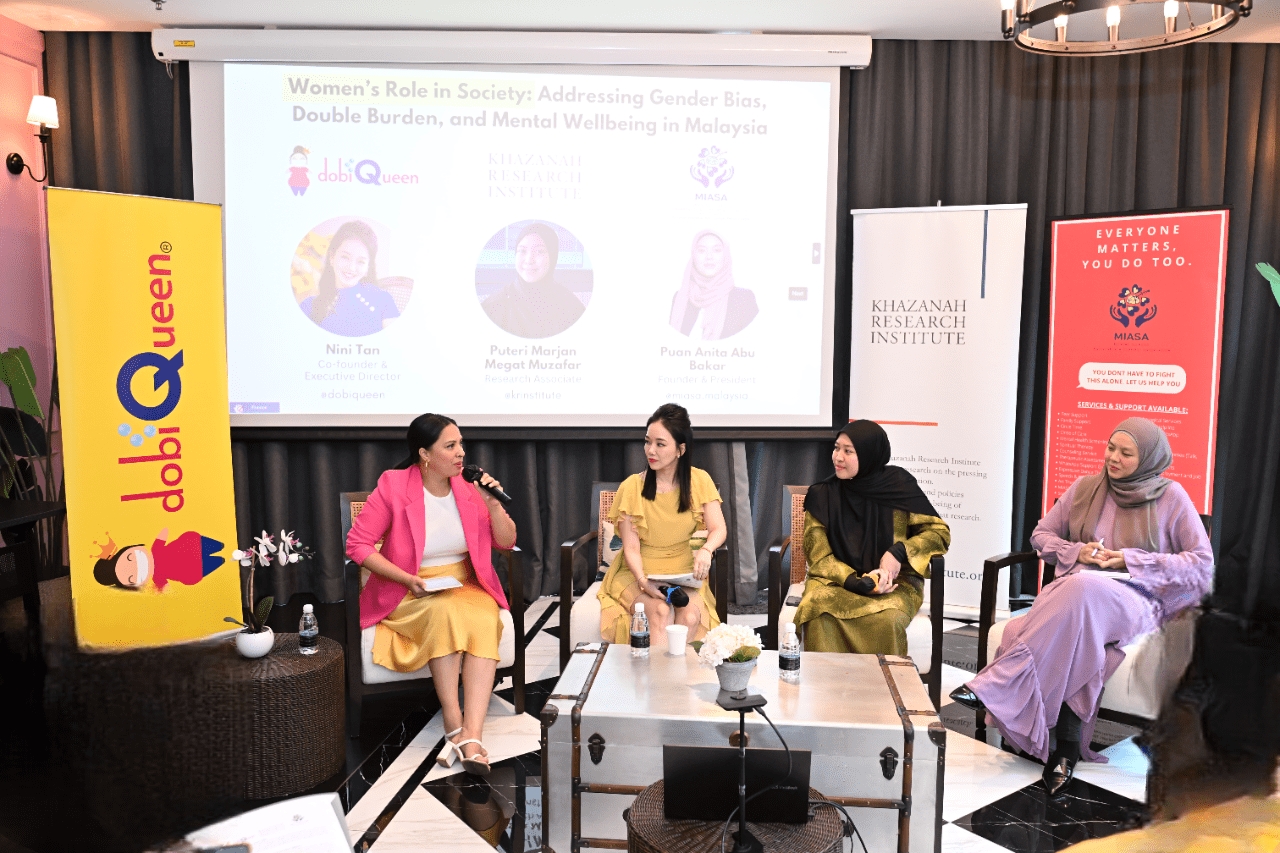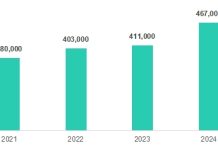
In an engaging session hosted by leading self-service laundrette dobiQueen, expert panelists discussed “Women’s Role in Society: Addressing Gender Bias, Double Burden & Mental Wellbeing in Malaysia,” sharing numerous key insights.
The Khazanah Research Institute (KRI) highlighted that while women’s educational attainment has improved, with women comprising 52% of those with tertiary education, they only represent 37.7% of the labour force. Women make up half of the professionals (50.1%) in skilled jobs but are underrepresented in key leadership roles, such as managers (25.4%) and technicians and associate professionals (29%).
“Social norms influence gender outcomes, including economic participation. Traditional gender roles persist, with men seen as primary breadwinners and women as caregivers, leading to gender inequality. These long-standing norms can limit women’s career aspirations and opportunities. Notably, 62.1% of women outside the labour force cite household chores and family responsibilities as their primary reason for not working,” said Puteri Marjan Megat Muzafar, Research Associate at KRI.
Addressing gender roles and bias, it was noted that women perform five times more unpaid household care work than men. These “unseen” tasks, from cleaning and caregiving to meal preparation, are crucial to daily life but remain excluded from traditional economic measures.
dobiQueen’s recent consumer survey revealed that 75% of laundromat users are women, with half in full-time employment and half being homemakers. “With only 25% of our user demographic being men, it indicates that a majority of women take on a significant load of household chores such as laundry and cooking,” said Nini Tan, Co-founder and Executive Director of dobiQueen.
Despite their increasing contributions to the formal economy, women are still expected to manage household and caregiving responsibilities. A lack of support and flexibility in the workplace prevents many from fully participating in the labour force.
A survey on mental health and wellness conducted by Rakuten Insight in Malaysia in May 2022 found that 54% of female respondents reported higher levels of stress or anxiety in the past 12 months. “Women often bear significant caregiving responsibilities, leading to caregiver fatigue and burnout, leaving little time for self-care.
“Persistent gender inequality in the workplace—marked by pay disparities, limited opportunities for advancement, and inadequate recognition—intensifies frustration and diminishes self-worth.
“Additionally, societal expectations impose unrealistic standards on women regarding success, appearance, and behaviour, leading to feelings of inadequacy, anxiety, and depression,” said Puan Anita Abu Bakar, Founder and President of the Mental Illness Awareness & Support Association (MIASA).
Malaysia aims to become a high-income nation with resilient, self-determined families, aligning with the SDG 2030 goals of inclusiveness and gender equality. Supporting women’s physical and mental well-being is crucial, as nation-building starts at home.
KRI emphasized the importance of a support system for caring for children and empowering women. While the three-generation or extended family arrangement has declined over the past four decades, alternative care arrangements can support working mothers.
“To promote and safeguard the emotional well-being of women, MIASA advocates for flexible work arrangements, including part-time positions, job sharing, compressed workweeks, on-site childcare, and robust family leave policies. These measures empower women to take necessary time off without fear of job loss and reinforce a supportive and high-trust workplace culture,” added Anita.
This upcoming 23rd and 24th of November, MIASA Malaysia will be organising the International Stigma Conference 2024. This conference is more than just an event—it’s a platform for change, a space for dialogue, and a beacon of hope. dobiQueen is a proud supporter of this Conference.
For inquiries, sponsorship opportunities and ticket packages, email MIASA at ISC2024.miasa@gmail.com or contact +60379321409 (HQ).














